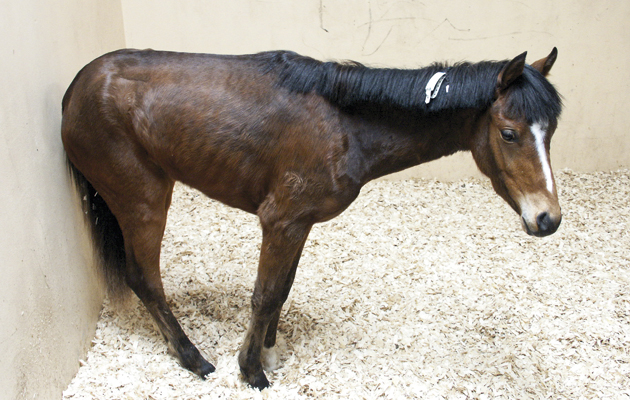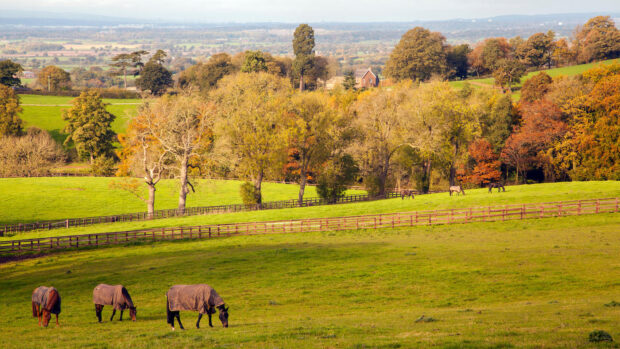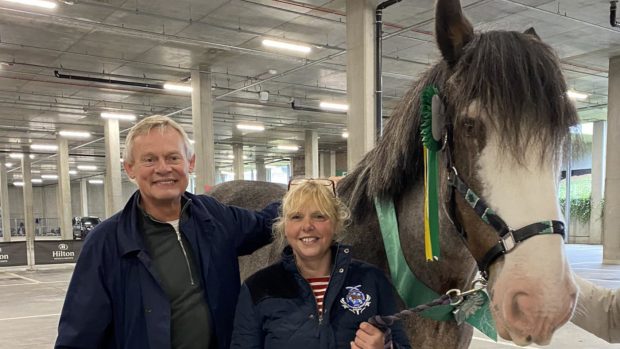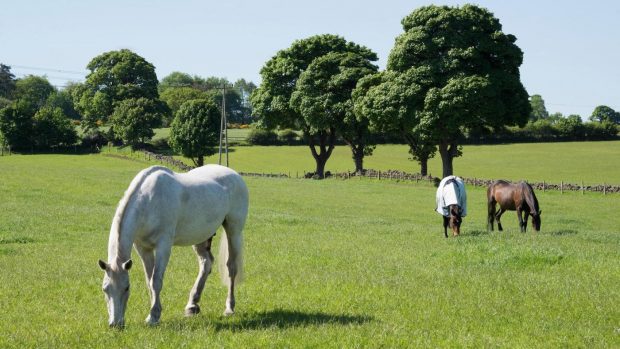A field trial for a new equine grass sickness vaccine has proved inconclusive.
The nationwide research involved more than 1,000 horses and ponies at 120 premises over four years, but has not resulted in conclusive proof that the vaccine prevents the devastating disease.
However, it has thrown up new information to help scientists gain a better understanding of the condition.
The trial aimed to determine the effectiveness of a Clostridium botulinum [C. botulinum] type C vaccination in preventing grass sickness, by comparing the number of cases in groups of vaccinated and placebo-treated equines.
Most vaccinated horses had a significant immune response and their C. botulinum type C anti-body levels after the primary course were on average 2.5 times higher than before the vaccines.
But the overall number of grass sickness cases over the trial, which ran from 2014 to 2018, was considerably lower than anticipated. Only nine cases were confirmed among the equines on the trial and the risk of grass sickness was not significantly reduced in those that received the vaccine compared to the placebo-treated group.
This meant it did not provide evidence that the vaccine helped prevent the disease.
“Although the field trial did not demonstrate a significant protective effect of the C. botulinum type C vaccine against equine grass sickness, this truly unique research has still achieved a number of things,” said Dr Richard Newton of the Animal Health Trust.
“We now have a greater understanding of equine grass sickness and the trial provided further evidence of vaccine safety under conditions of field use.”
Article continues below…
You might also be interested in:

Subscribe to Horse & Hound magazine today – and enjoy unlimited website access all year round

‘Don’t give up hope’ says owner of grass sickness survivor
Joey dropped to his lowest weight of 260kg from his original weight of 420kg

Scientists find link between Alzheimer’s and equine grass sickness
Similarities between Alzheimer’s and equine grass sickeness have been discovered by researchers in a ground-breaking study
Dr. Jo Ireland from the University of Liverpool added: “We are so grateful to all the veterinary practices, horse owners and supporters who helped make this research possible.
“The significant amount of data that has been collated during this nationwide field trial will be a very valuable resource for subsequent research studies to benefit future generations of horses and ponies.”
The trial was carried out as scientific evidence suggests that equine grass sickness may be associated with C botulinum type C, which is found commonly within soil.
As other, similar diseases such as tetanus and botulism can be prevented through vaccination, this would suggest the same may be true of equine grass sickness.
The field trial also found both the vaccine and placebo injections were safe, with a low frequency of local injection site reactions.
While findings of the effectiveness of the vaccine were inconclusive, researchers did find that both younger animals and low C. botulinum type C antibody levels were significantly associated with an increased risk of grass sickness.
It also made the groundbreaking discovery that low anti-body levels were found in equines affected by grass sickness before the onset of the disease.
It has also led to the conclusion that further research to fully explain the nature of the association between C. botulinum type C and EGS would be warranted.
For all the latest news analysis, competition reports, interviews, features and much more, don’t miss Horse & Hound magazine, on sale every Thursday




